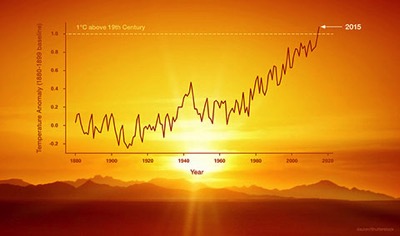 Willem de Lange, the Waikato University coastal processes lecturer and one of the panellists nominated to review sea level rise advice relied on by Christchurch City Council, helpfully demonstrated the true extent of his climate expertise in the National Business Review last week [WebCite]. In an article titled Evidence doesn’t support rapid future sea level rise, written with Bryan Leyland, de Lange demonstrates just how slapdash his approach to the subject really is.
Willem de Lange, the Waikato University coastal processes lecturer and one of the panellists nominated to review sea level rise advice relied on by Christchurch City Council, helpfully demonstrated the true extent of his climate expertise in the National Business Review last week [WebCite]. In an article titled Evidence doesn’t support rapid future sea level rise, written with Bryan Leyland, de Lange demonstrates just how slapdash his approach to the subject really is.
The piece is riddled with errors and misrepresentations. Here’s a selection:
- The “recent” paper on sea level rise de Lange and Leyland (dLL) reference in their first paragraph is from 2010! The latest Royal Society of NZ climate info was published last month, and is presumably what dLL meant to refer to.
- The rise in sea level around NZ over the last 100 years is 17cm, not 14cm, according to the RSNZ (page 28 here).
- dLL claim that climate models are “flawed”, and have failed to predict current temperatures. In fact current global temperatures are more or less bang in the middle of model projections.
- In discussing tidal gauge measures of sea level rise they refer to a denialist web site, not the primary sources.
- They reference a textbook on sea level rise, but neglect to point out that it was published 15 years ago.
- dLL state that the current rate of sea level rise measured by satellite is 3.2 mm per year, with “indications of recent decline in the rate”. In fact it is 3.4mm per year, and shows no signs of any recent slowdown. If anything, there are hints of an acceleration in the underlying rate.
- dLL claim that satellite measures are “about twice the tide gauge rate”. They’re not. They’re in good agreement. From Trends and acceleration in global and regional sea levels since 1807, Jevrejeva et al, Global and Planetary Change, 2013 (pdf)
There is an excellent agreement between the linear trends from GSL12 [latest tide gauge data] and satellite altimetry sea level since 1993, with rates of 3.1 ± 0.6 mm/yr and of 3.2 ± 0.4 mm/yr respectively.
- The latest RSNZ projections are not “much more than anybody else” – they’re based on the IPCC’s AR5 and draw on the current literature. Larger projected future rises are widely used in planning overseas.
- dLL state: “All the observational evidence indicates that the sea level is likely to rise 0.1 to 0.2 m by 2100.” This appears to be nothing more than wishful thinking. The current SLR rate gives 30cm plus by end of the century as a minimum.
- There’s strong evidence of increased and increasing ice sheet mass loss in Greenland and Antarctica, which will add significantly to the amount of sea level rise by the end of the century. If we’re lucky, that might only be a metre. If we’re unlucky, it might be a great deal more.
If this were de Lange and Leyland’s only contribution to the debate on how communities should cope with sea level rise, it might be possible to shrug it off as a slapdash attempt at propaganda from a couple of people with a long history of climate denial. But de Lange is getting involved with the Christchurch community’s efforts to deal with this most challenging of issues.
Do Christchurch ratepayers really want to pay for advice from an “expert” who can’t get his facts right, and who is apparently happy to put his name to rubbish? The council should immediately ask for his withdrawal from the panel.
Future sea level rise is a certainty. Dealing with it is going to be challenging for any coastal community. We need a national framework that covers realistic assessments of local risk, and provides a process that allows communities to adapt as equitably as possible as their coastline changes. Trying to ignore or downplay the problem is only going to increase the costs faced by ratepayers and taxpayers in future years. If we allow the process to be contaminated by the input of propagandists we simply set ourselves up for greater losses.
Like this:
Like Loading...



